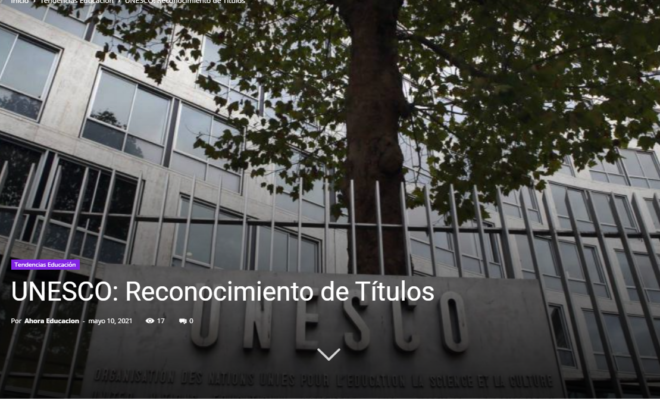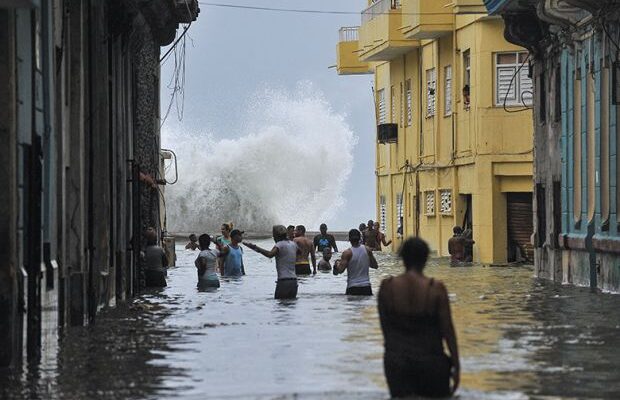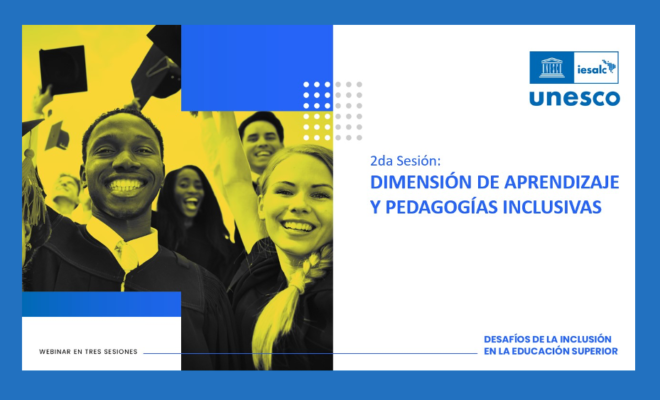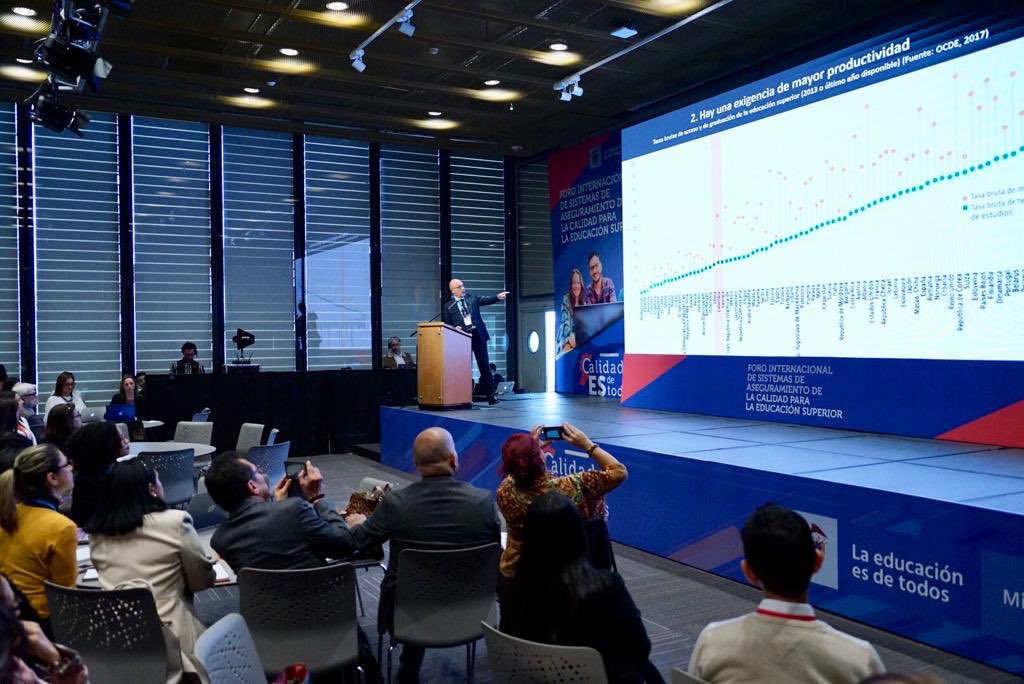PEDRÓ: “Universities have to reinvent themselves to make the leap in quality and equity” / Page 12
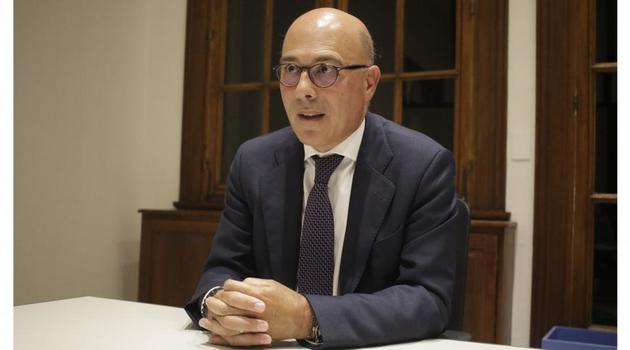
Within the framework of a conversation at the Universidad Nacional de Tres de Febrero (Argentina), Pedró spoke with the Página 12 team. Photo Leandro Teysseire
By Constanza Bonsignore // The main challenge for higher education systems in Latin America is to stop thinking in traditional terms and innovate to improve academic quality and student access, says Francesc Pedró, recently appointed director of the Institute for Higher Education in Latin America and the Caribbean (IESALC-Unesco). With a PhD in Philosophy and Educational Sciences, Pedró spoke with Página 12 about the situation of Latin American universities, the budget crisis, free education and other issues.
-What do you think are the main challenges facing higher education in Latin America?
-The main challenge is that they must stop thinking in traditional terms. How can we achieve greater coverage, how can we achieve greater graduation, doing exactly the same thing that universities in other countries did 25 or 50 years ago. So the main challenge here is the challenge of innovation. I am not referring to technological innovation, but to universities reinventing themselves to be able to make the leap in equity and quality.
In the tribute to the 70th anniversary of free university education in Argentina, you said that 40 percent of the world’s university systems are free. Why do you think there is a majority of fee-paying systems?
-The main reason is because the history of the university system around the world is the history of a provision dedicated in principle to an elite and, therefore, that elite never thought about the need for free education. Or in those places where university education was free, it was free because the previous stages, in particular secondary education or baccalaureate, were paid for and reserved for an elite. So people paid to go to high school and when they got to university it was public, but in the end it was for the benefit of that same elite. The massification and democratization of secondary education have also translated into free secondary education, at least in public institutions, but not all countries have crossed the border beyond 18 years of age, which in most countries is the entry into adulthood. So it is considered that from that moment on we no longer enter a dynamic of compulsory schooling, but rather a dynamic of optionality.
-What should the system of admission to universities be like so that there is as equal access as possible?
-Paradoxically, the battle for equity in higher education is not only played at the highest levels. Equity is played in the period from 0 to 6 years. That is to say, the policies in favor of equality of opportunities in education begin at the very moment we know that a boy or a girl is going to be born. And these equity policies in education are not only educational policies, they are also social policies, housing policies, health policies. In other words, it is difficult to imagine a society that is profoundly inequitable suddenly dawning one day with a magic formula that makes access to higher education more equitable. Rather, we could say that societies that are more equitable in everything end up having access mechanisms that are also much more equitable. There is no magic formula. The whole context in which the future student lives has to accompany him/her in this exercise of equal opportunities.
-Does the situation of budgetary crisis suffered by Argentine universities affect all university systems in Latin America?
-Yes, there are some exceptions, but in general the economic context of Latin America, plus the demographic ups and downs, mean that there are poor prospects in real terms for increasing investment in higher education. This does not mean that we should not remember that it is a responsibility of the States and that they should continue to invest more, but there is no sign that there can be an expansion of social spending in the short term. One of the disadvantages or drawbacks of this region is its cyclical nature. We are in a bad moment now. But better times will come, and when they do, we will have to remember that public commitment to education is not just a matter of discourse, but of budgetary commitment.
-How do you see the university of the future?
-It is difficult to say because no one can know how things are going to be, but, in the context of any educational system, universities are the ones that are producing the most innovations and the fastest, innovations in teaching methods, innovations in the organization of studies. I think we will see many more in the future, aimed at making higher education provision much more flexible and also making it possible for the student to remain so throughout life. I believe that empowering the individual from a perspective of more and better opportunities in education throughout life is something we have to achieve, but how it will be done is the question of the future. Many avenues are being explored and we have not yet come up with the definitive answer.
Interview taken from Page 12
RELATED ITEMS


